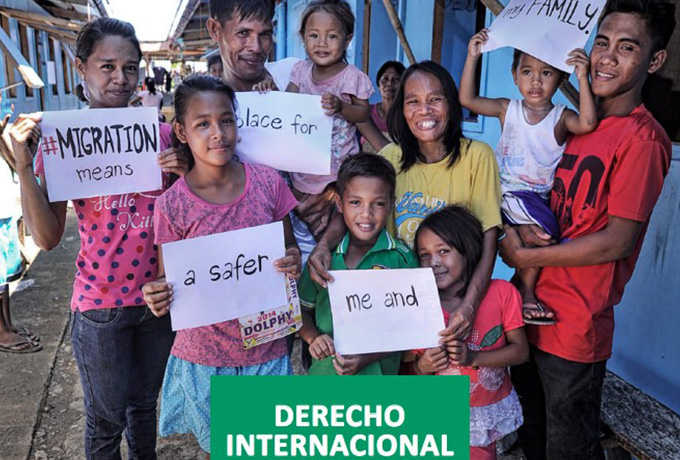SOGIESC diversity:
Generic term encompassing all individuals whose sexual orientation, gender identity, gender expression and/or sexual characteristics place them outside the culturally dominant categories.
Migrant worker:
A person who is to be engaged, is engaged or has been engaged in a remunerated activity in a State of which he or she is not a national.
Migrant:
An umbrella term, not defined under international law, reflecting the common lay understanding of a person who moves away from his or her place of usual residence, whether within a country or across an international border, temporarily or permanently, and for a variety of reasons. The term includes several well-defined legal categories of people, such as migrant workers; persons whose particular types of movements are legally defined, such as smuggled migrants; as well as those whose status or means of movement are not specifically defined under international law, such as international students.
Gender perspective:
The gender perspective or gender approach is an analysis that looks at the impact of gender on people's opportunities, social roles and interactions. Therein, the existence of inequalities between different genders is recognized, resulting from the cultural assignment of symbols, values and practices regarding bodily sexual differences (real or perceived). These inequalities are related to asymmetric power structures that place men and the masculine in a privileged position, and women and the feminine in a position of subordination.
Refugee:
According to the 1951 Convention relating to the Status of Refugees, a person who, owing to a well-founded fear of persecution for reasons of race, religion, nationality, membership of a particular social group or political opinion, is outside the country of his/her nationality and is unable or, owing to such fear, is unwilling to avail himself/herself of the protection of that country; or who, not having a nationality and being outside the country of his/her former habitual residence as a result of such events, is unable or, owing to such fear, is unwilling to return to it. Moreover, the Cartagena Declaration on Refugees extends the category of refugees as defined in the Convention relating to the Status of Refugees to persons whose life, safety or freedom have been threatened by generalized violence, external aggression, internal conflicts, massive violation of human rights or other circumstances seriously disturbing public order.
Country of transit:
In the migration context, the country through which a person or a group of persons pass on any journey to the country of destination or from the country of destination to the country of origin or the country of habitual residence.
Country of origin:
In the migration context, a country of nationality or of former habitual residence of a person or group of persons who have migrated abroad, irrespective of whether they migrate regularly or irregularly.
Country of destination:
In the migration context, a country that is the destination for a person or a group of persons, irrespective of whether they migrate regularly or irregularly.



